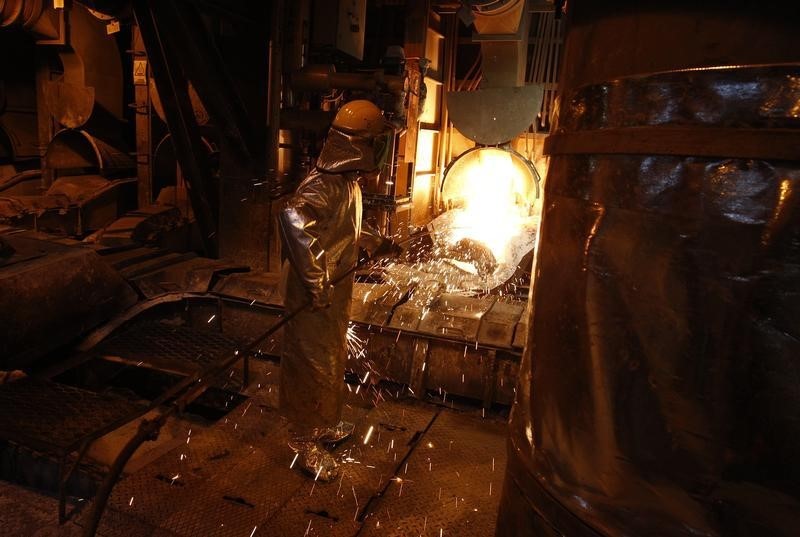By Marcin Goettig
WARSAW (Reuters) - Central European manufacturing growth slowed in April reflecting a similar weakening in the euro zone, surveys showed on Monday, but analysts said it was not enough to undermine a positive growth outlook for the region.
In Poland, the region's biggest economy, the manufacturing PMI eased, for the third month running, to 54.0 from 54.8 in March, capped by a slower increase in new orders, data compiled by Markit and HSBC showed.
Economists polled by Reuters expected the index at 54.6.
"The data show some weakening, but they do not alter our expectations for the decision of central banks in the region or economic growth," said Piotr Kalisz, chief economist for central and eastern Europe at Citigroup (NYSE:C).
He said he currently expects economic growth to accelerate to 3.9 percent in Poland this year and to 3.2 percent in the Czech Republic.
Manufacturing activity in central Europe has grown strongly earlier this year thanks to the region's close ties to the reviving euro zone - as well as to the fact it avoided excessive currency gains by keeping monetary policy loose.
Euro zone manufacturing growth eased in April, but headcount rose at the fastest pace in nearly four years as the European Central Bank carries on with its massive monetary stimulus.
Hungary's PMI, compiled using a different methodology, fell to 51.0 in April from 55.4 in March and was below the long-term average of 51.9 for the month, the Association of Logistics, Purchasing and Inventory Management said.
Hungary's PMI is more volatile than the indexes for Poland an the Czech Republic, making it less reliable in predicting economic growth, analysts said.
Unlike Poland, which ended its monetary easing cycle after a rate cut in March, Hungary has resumed easing this year, with analyst expecting more cuts in the coming months.
"This (PMI) can be an argument for a rate cut," said Zoltan Torok, analyst at Raiffeisen in Budapest.
CURRENCY STRENGTH
Despite this year's gains in the zloty currency against the euro, the PMI data showed little sign that this was a hindrance for economic performance as the export component of the Polish PMI grew at its fastest pace since February 2014.
In the export-reliant Czech Republic, the manufacturing PMI fell to 54.7 from March's 56.1, reflecting weaker growth in new orders and employment, data compiled by Markit showed.
Analysts had expected the index at 55.8 in April.
"This outturn points to a growth in industrial production around 5 percent year-on-year. This is, however, not enough, to see a larger improvement in the labour market," Citigroup's Kalisz said.
"This would increase a dovish tone in the Czech National Bank's Board," Kalisz said. But he predicted only a limited risk of the bank lowering the ceiling it has in place to rein in gains in the crown currency against the euro.

The Czech central bank imposed a cap on the strength of the crown (EURCZK=) in 2013, ensuring that no matter how much the euro weakens it will not cost less than about 27 crowns.